At 5:55pm on March 7th, the legislature adjourned the 2024 legislative session, Sine Die. The 2024 Washington State legislative session was a short session, which means it lasted for just 60 days and moved at a rapid pace as legislators worked diligently to pass bills and budgets and end on time.
A total of 379 bills passed the legislature during the 2024 session, and of those, 234 had unanimous votes. For comparison, the average number of bills passed in a short session is about 315. Some of the main issue areas of focus this session included behavioral health, climate change, housing & homelessness, and K-12 education.
Bills that passed the legislature now go on to the Governor for consideration. Bill signing schedules and the list of bills that have been signed can be found here. As a reminder, any bill that hit the Governor’s desk within the last five days of session has 20 days (not counting Sundays) for him to take action. To date, the Governor has signed 14 bills into law and at this point no bills have had a partial or full veto.
In addition to the work done to pass policy bills, this session also included the business of writing the 2024 supplemental operating, transportation, and capital budgets. Given the fairly modest increases in projected revenue in the spring quarterly economic & revenue forecast, the budgets were true supplemental budgets with modest investments focused on urgent and emergent issues.
Electeds & Elections
A very active electoral field is shaping up for the 2024 elections with several members running for other offices, and a growing number of retirements in the legislature.
- House: Kelly Chambers, Spencer Hutchins, Joel Kretz, Jacqueline Maycumber, T. Wilcox, Mike Chapman, Paul Harris, Marcus Riccelli
- Senate: Andy Billig, Manka Dhingra*, Sam Hunt, Karen Keiser, Patty Kuderer*, Mark Mullet, Emily Randall*, Kevin Van De Wege, Lynda Wilson
*Maintains current role even if they lose their race
Initiatives
In the last week of session, both chambers took action and passed three of the six initiatives to the legislature:
- Initiative 2111 relating to limiting the ability of state and local governments to impose an income tax.
- Initiative 2081 concerning parental rights and their children’s public-school
- Initiative 2113 relating to vehicular pursuits by police
With passage by the legislature, the initiatives are now law. They do not require action by the Governor.
The remaining three initiatives to the legislature will be on the ballot in November. Those initiatives are: I-2117 (a repeal of the Climate Commitment Act), I-2109 (a repeal of the capital gains tax), and I-2124 (an opt-out of Washington’s long-term care retirement program that would effectively end the program).
Operating Budget
The 2024 supplemental budget increases spending by $2.143 billion, which increases the 2023- 25 two-year operating budget to $71.947 billion. Some of the large areas of investment include:
- $757 million for K-12 education
- $77 million for higher education
- $660 million for behavioral health
- $276 million for health care and public health
- $150 million for children, youth & families
- $94 million for housing & homelessness
- $130 million for other human services
- $71 million for natural resources
The budget includes no new taxes and retains $2.617 billion in reserves over the 4-year outlook period.
Operating Budget Documents: Budget Bill, Summary, Statewide Summary & Agency Detail
Capital Budget
The final 2024 supplemental capital budget spends $1.336 billion in total funds, of which $130.6 million is debt limit bonds. Revised 2023–25 capital budget appropriations would be $9.997 billion. The final budget leaves a projected ending balance of $547,000 in debt-limit bonds.
Some of the key capital budget investments are in the areas of:
- $684 million for the Climate Commitment Act
- $127.5 million for the Housing Trust
- $82.7 million for behavioral health community capacity
- $69.3 million for local and community projects
- $114 million for small district and tribal compact schools modernization
- $95.8 million for broadband
- $8.2 million for outdoor recreation and conservation Capital Budget Documents:
Capital Budget Bill Summary & Project Lists
Additional Capital Budget Documents (links to all project lists can be found here)
Transportation Budget
The final 2024 supplemental transportation budget would increase appropriations from all budgeted funds by $1.099 billion. Revised 2023–25 appropriations would be $14.714 billion
Some of the key transportation budget investments are in the areas of:
- $30 million for public transportation
- $196 million for state ferries
- $10.5 million for rail projects
- $32.9 million in local programs
- Budget and project lists can be found here.
Key Issues that Passed the Legislature
- Natural Gas: HB 1589 reduces reliance on natural gas by limiting its expansion and promoting a transition to cleaner energy. It’s part of efforts to address climate change by reducing carbon emissions, with proponents highlighting that residential natural gas use significantly contributes to Washington’s carbon footprint. Opponents voiced concerns about the financial impact on consumers, especially in underserved communities, due to increased energy rates this bill could possibly cause.
- Carbon Linkage: The Senate vehicle for the carbon market linkage bill, SB 6058, passed out of the House. There will likely be ongoing issues related to linkage if the Climate Commitment Act survives the initiatives this fall.
- Working Families’ Tax Credit: HB 1895 clarifies the refundable nature of the working families tax credit.
- Liability protections for crisis team responders: EHB 2088 extends liability protections for responders dispatched from mobile rapid response crisis teams and community- based crisis teams.
- Long-term services and supports trust: SHB 2467 allows individuals who have left Washington to elect to continue participation in the Long-Term Services and Supports Trust program if they have been assessed the premium for at least 3 years in which they worked the minimum number of qualifying hours in Washington.
- AI taskforce: E2SSB 5838 creates an AI taskforce to assess uses, develop guiding principles, and make recommendations for the regulation of generative AI.
- Sales and use tax incentive for existing structures: E2SSB 6175 allows a city to establish a sales and use tax deferral program for the conversion of underutilized commercial property to affordable housing.
- Retail industry work group: ESB 6296 establishes a retail industry work group consisting of higher education, business, labor, and workforce development representatives with expertise in the retail workforce.
Key Issues that Did Not Pass the Legislature
- Re-WRAP Act: The Re-WRAP Act, HB 2049, never got pulled onto the House floor for a vote and is considered dead for this session. The bill would’ve revamped Washington’s recycling system.
- Residential rent and fees: HB 1124, never got pulled onto the House floor for a vote and is considered dead for this session. It would’ve required landlords to provide at least 180 days’ notice for rent increases over 5% and allowed a tenant to terminate a tenancy without penalty for any rent increase over 5%.
- Lot splitting: ESHB 1245, was passed by the House on the first day of session but was never scheduled for a public hearing in the Senate. The bill increased housing options through lot splitting.
- Residential tenants: ESHB 2114, passed the House but never progressed in the Senate. The bill limited rent and fee increases to 7% during any 12-month period and prohibited rent and fee increases during the first 12 months of a tenancy for tenants subject to the Residential Landlord-Tenant Act and the Manufactured/Mobile Home Landlord-Tenant Act.
- Affordable and workforce housing: SHB 2276 never got pulled onto the House floor for a vote and is considered dead for this session. It would’ve increased the “ceiling” for Tier 1 REET from $525,000 to $750,000 beginning January 1, 2026 and imposed a new real estate transfer tax (RETT) of 1% on the value of the selling price over $3.025 million.
- Transit-oriented housing development: E2SHB 2160 passed the House, but died in the Senate Ways and Means Committee.
- Property Tax Reform: SSB 5770 never got pulled onto the Senate floor for a vote and is considered dead for this session. The bill increased the property tax revenue limit for local property taxes.












